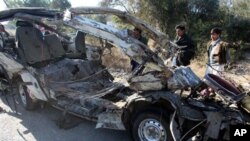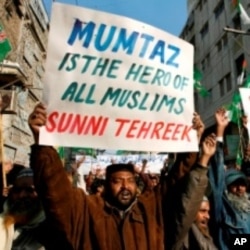The recent assassination of the governor of Pakistan’s most populous province delivered another shock to a country reeling on multiple fronts. Pakistan is struggling to maintain stability while trying to cope with a shaky economy, wobbly politics, and emboldened domestic terrorism.
Pakistan remains beset by security, economic, and political troubles that have caused leading analysts to voice deep concern about the country’s stability.
Terrorist activity inside Pakistan continues to grow, as evidenced by the recent assassination of Punjab Governor Salman Taseer, allegedly by one of his own handpicked bodyguards. The economy is in a shambles as key economic reforms were put on hold, placing more than $3 billion in International Monetary Fund bailout money in jeopardy. The governing coalition briefly disintegrated, reuniting only when the ruling Pakistan Peoples’ Party rescinded an unpopular increase in fuel prices and put off plans for tax reform.
Stephen Cohen of the Council on Foreign Relations says Pakistan’s woes do not necessarily mean the country is on the verge of collapse, but adds that there are very worrisome trends.
"It’s not necessarily on the road to disintegration," he said. "But all of the trend lines are negative. I can’t think of many positive ones. And, of course, the floods and the assassinations and the sectarian violence and the bad economy contribute to this."
The Pakistan terrorist threat has captured most of the world headlines. More than one analyst has described it as a “Frankenstein monster,” referring to the fictional scientist who created a new being but found he could not control it. The army and in particular the military-run Inter-Services Intelligence directorate, or ISI, are widely reported to have trained, financed, and armed militant groups as a way of maintaining influence in Afghanistan and waging proxy war on India.
Former CIA officer Bruce Riedel says the Pakistan army is fighting militants in six of the seven tribal areas, taking casualties and imposing serious costs on the jihadists. But at the same time, he adds, other jihadists, particularly those rattling India, are openly tolerated in Pakistan.
"It is this unique and complex situation in which Pakistan is both victim and patron of terror that is so unique today," said Riedel. "You add the worst natural disaster in the country’s history, extreme economic problems, and extraordinarily poor governance together and you have the makings of a potential disaster."
Riedel, who has just written a new book on the nexus between Pakistan, the U.S., and the global jihad, says Pakistan remains a country with high democratic aspirations, despite an intermittent string of military rulers and floundering civilian governments.
"Pakistan is a country in which the yearning for democracy has pushed the dictators out of office over and over again," he said. "Unfortunately for the Pakistani people, the civilian leaders they’ve often got have not lived up to the hopes of the Pakistani people, and that’s as true today as it has been on so many occasions in the past."
But the worst thing the U.S. and the West could do, he adds, would be to resort to the expedient of encouraging the army to step in yet again to fix things.
"Whatever else we do, don’t undermine the democratically elected civilian leadership of Pakistan," said Riedel. "The politicians we are dealing with are weak, corrupt, and, more often than not, ineffective. But they are the best of bad alternatives."
But the economy is still foundering. The country is recovering from the recent destructive floods, electric power outages are widespread, prices are rising, and inflation is hovering at over 15 per cent - all of which, analysts say, are further fueling anti-government sentiment.






